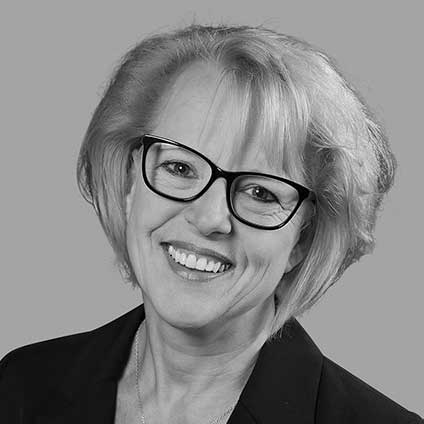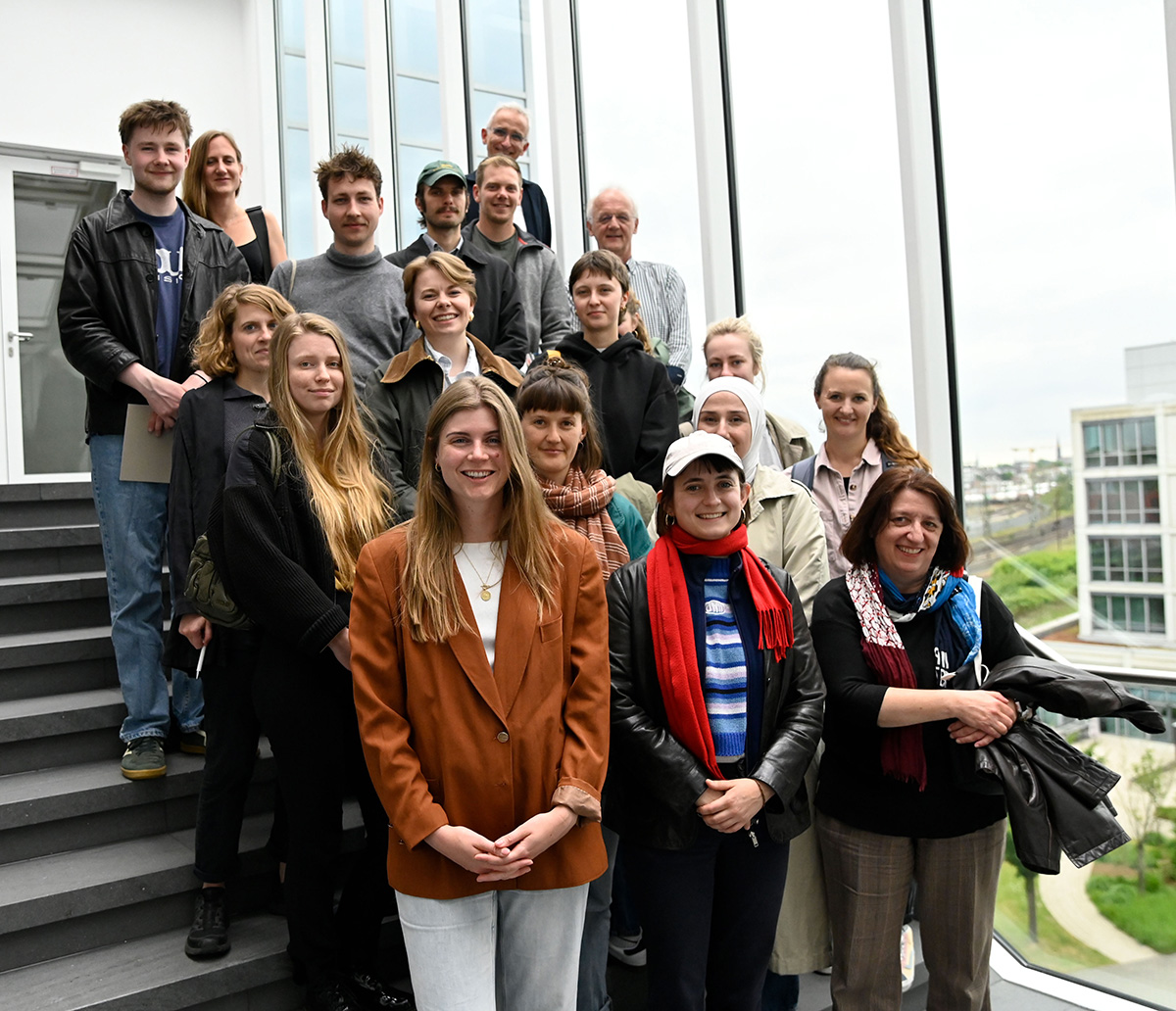11.06.2025
German School of Journalism (DJS) visits Landwirtschaftsverlag Münster

Contact
Gabriele Blömker
02501 801-1670
gabriele.bloemker@lv.de

The budding journalists from the German School of Journalism visited Agravis AG as part of their exchange with Landwirtschaftsverlag Münster. Photo: Agravis
14 prospective journalists from the DJS exchange ideas with colleagues from Landwirtschaftsverlag as well as with farmers and other representatives of the agricultural and food industry.
How are pigs kept in different husbandry systems? Why do arable farmers protect their crops with pesticides? What does modern dairy farming look like? And how is the food value chain organized? These and other key questions about the agriculture and food industry were on the agenda during a visit to the German School of Journalism at Landwirtschaftsverlag in Münster at the end of May.
At the invitation of Stiftung Landwirtschaftsverlag, 15 prospective journalists from the German School of Journalism in Munich (DJS) spent three days in Münster and the surrounding area. They met farmers and learned about the most important agricultural production areas of arable farming, animal husbandry and renewable energies. They also visited companies from the agricultural and food industry and the food retail sector. This year, these included Agravis Raiffeisen AG and Superbiomarkt AG.
The aim of the exchange is to bring farmers and non-farmers together and to strengthen mutual understanding. Most of the young journalists come from urban environments and have had little contact with agriculture to date. For the specialist journalists from Landwirtschaftsverlag, most of whom come from rural areas, it was also insightful to engage with non-agricultural perspectives.
„If the exchange helps us to better understand how farmers combine economic success with greater animal welfare, more environmental and nature conservation and more biodiversity, and where there are conflicting goals, then we will have achieved a great deal. “My impression is that we have succeeded,” says Malte Schwerdtfeger, Managing Director of Landwirtschaftsverlag and Chairman of the Foundation, summarizing the results.
Christine Weishuber from the German School of Journalism confirms this: „We took away a lot of great impressions and felt very comfortable in Münster. Many thanks to Landwirtschaftsverlag, the foundation and everyone involved for their time.”
About Landwirtschaftsverlag Münster and its foundation
With its media and service offerings in the areas of agriculture, food and rural life, the Landwirtschaftsverlag group of companies is one of the top ten German specialist publishers in terms of turnover and one of the 100 largest German media companies with a total turnover of over 130 million euros. The group of companies employs a total of around 900 people in Münster and at its other locations in Germany, Poland, Austria and the Netherlands.
The Stiftung Landwirtschaftsverlag is part of the group of companies and, among other things, promotes dialog between agriculture and society. An important concern is to convey a realistic and differentiated picture of modern agriculture - especially to future media professionals. With projects such as visits by journalism students, the foundation gives young people an insight into agricultural businesses.
About the German School of Journalism
The German School of Journalism (DJS) in Munich is one of the most respected independent training centers for journalism in Germany. The school, which has been operating since 1949, is supported by 60 institutions, including journalists' and publishers' associations, the Bavarian State Agency for New Media, several political parties and various large publishing houses, including Landwirtschaftsverlag Münster and television stations. The school also receives funding from the Press and Information Office of the Federal Government, the Free State of Bavaria and the City of Munich. Ludwig-Maximilians-Universität München covers part of the costs for the practical training of the student classes.